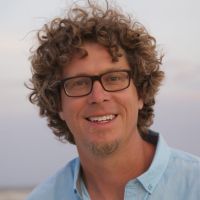Facilitation shifts paradigms and can amplify coastal Restoration efforts
Date
2015-11-17
Journal Title
Journal ISSN
Volume Title
Repository Usage Stats
views
downloads
Citation Stats
Abstract
Restoration has been elevated as an important strategy to reverse the decline of coastal wetlands worldwide. Current practice in restoration science emphasizes minimizing competition between outplanted propagules to maximize planting success. This paradigm persists despite the fact that foundational theory in ecology demonstrates that positive species interactions are key to organism success under high physical stress, such as recolonization of bare substrate. As evidence of how entrenched this restoration paradigm is, our survey of 25 restoration organizations in 14 states in the United States revealed that >95% of these agencies assume minimizing negative interactions (i.e., competition) between outplants will maximize propagule growth. Restoration experiments in both Western and Eastern Atlantic salt marshes demonstrate, however, that a simple change in planting configuration (placing propagules next to, rather than at a distance from, each other) results in harnessing facilitation and increased yields by 107% on average. Thus, small adjustments in restoration design may catalyze untapped positive species interactions, resulting in significantly higher restoration success with no added cost. As positive interactions between organisms commonly occur in coastal ecosystems (especially in more physically stressful areas like uncolonized substrate) and conservation resources are limited, transformation of the coastal restoration paradigm to incorporate facilitation theory may enhance conservation efforts, shoreline defense, and provisioning of ecosystem services such as fisheries production.
Type
Department
Description
Provenance
Subjects
Citation
Permalink
Published Version (Please cite this version)
Publication Info
Silliman, BR, E Schrack, Q He, R Cope, A Santoni, T van der Heide, R Jacobi, M Jacobi, et al. (2015). Facilitation shifts paradigms and can amplify coastal Restoration efforts. Proceedings of the National Academy of Sciences of the United States of America, 112(46). pp. 14295–14300. 10.1073/pnas.1515297112 Retrieved from https://hdl.handle.net/10161/10811.
This is constructed from limited available data and may be imprecise. To cite this article, please review & use the official citation provided by the journal.
Collections
Scholars@Duke

Brian Reed Silliman
Brian Silliman is the Rachel Carson Distinguished Professor of Marine Conservation Biology. He holds both B.A. and M.S. degrees from the University of Virginia, and completed his Ph.D. in Ecology and Evolutionary Biology at Brown University. In recognition of his research achievements, Silliman was named a Fellow of the Ecological Society of America in 2023, Distinguished Fulbright Chair with CSIRO in 2019; a Fellow of the American Association for the Advancement of Sciences in 2015; a Visiting Professor with the Royal Netherlands Society of Arts and Sciences in 2011; and David H. Smith Conservation Fellow with The Nature Conservancy in 2004. He has also received several awards, including the Young Investigator Award from the American Society of Naturalists (2006), a Young Investigator Grant Award from the Andrew Mellon Foundation (2007), and a NSF Career Grant Award (2011). Dr. Silliman has published 25 book chapters and over 200 peer-reviewed journal articles, and co-edited five books: Marine Community Ecology and Conservation, Marine Ecosystem Restoration: Challenges and New Horizons, Human Impacts on Salt Marshes: A Global Perspective, Effective Conservation: Data not Dogma, and Marine Disease Ecology. His teaching and research are focused on community ecology, food webs, conservation and restoration, global change, and evolution and ecological consequences of cooperative behavior.
Unless otherwise indicated, scholarly articles published by Duke faculty members are made available here with a CC-BY-NC (Creative Commons Attribution Non-Commercial) license, as enabled by the Duke Open Access Policy. If you wish to use the materials in ways not already permitted under CC-BY-NC, please consult the copyright owner. Other materials are made available here through the author’s grant of a non-exclusive license to make their work openly accessible.
